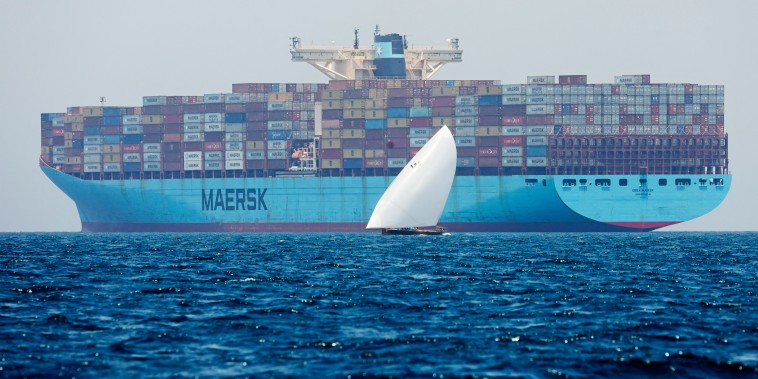
Maersk will pause all shipping through the Red Sea and Gulf of Aden until further notice after one of its vessels came under attack from militants over the weekend, the company announced Tuesday.
The decision by the Danish shipping giant extends a 48-hour pause implemented on Sunday in the immediate aftermath of the attack.
“We have made the decision to pause all transits through the Red Sea / Gulf of Aden until further notice,” the company said in an update to customers.
Oil prices were volatile Tuesday, jumping more than 2% earlier in the day on Red Sea tensions but later giving up those gains. U.S. crude was last down 82 cents, or 1.14%, to trade at $70.83 a barrel. Brent lost 68 cents, or 0.88%, to trade at $76.36 a barrel.
Helima Croft, head of global commodity strategy at RBC Capital Markets, said oil prices do not reflect the increase in tensions because traders are not convinced that a major supply disruption is on the horizon.
“The market is basically saying ‘we will wait and see until something happens,’” Croft told CNBC on Tuesday. “But it’s really getting much more serious every day,” she said of tensions in the region.
The container ship Maersk Hangzhou came under attack over the weekend by four small boats crewed by Houthi militants, who are based in Yemen and backed by Iran.
U.S. Navy helicopters responded to a distress call from the Maersk Hangzhou and fired on the militants after coming under attack, sinking three boats and killing the crews, according to the U.S. Central Command.
“An investigation into the incident is ongoing and we will continue to pause all cargo movement through the area while we further assess the constantly evolving situation,” Maersk said in its Tuesday update.
Vessels will be rerouted and continue their journey around the Cape of Good Hope in Africa in cases where this makes sense, the company said.
Houthi militants have repeatedly attacked vessels in the Red Sea in recent weeks in response to the war in Gaza. The attacks have raised concern about disruptions to global trade through the crucial waterway.
Some 12% of global trade and about 3 million barrels of crude oil pass through the Red Sea per day, according to RBC Capital Markets.
